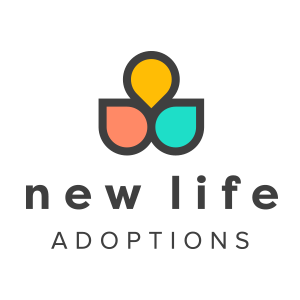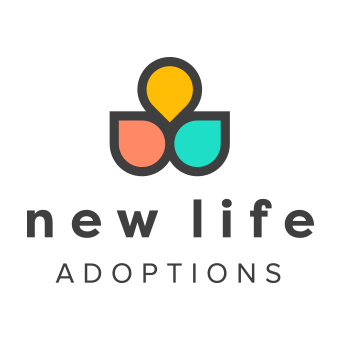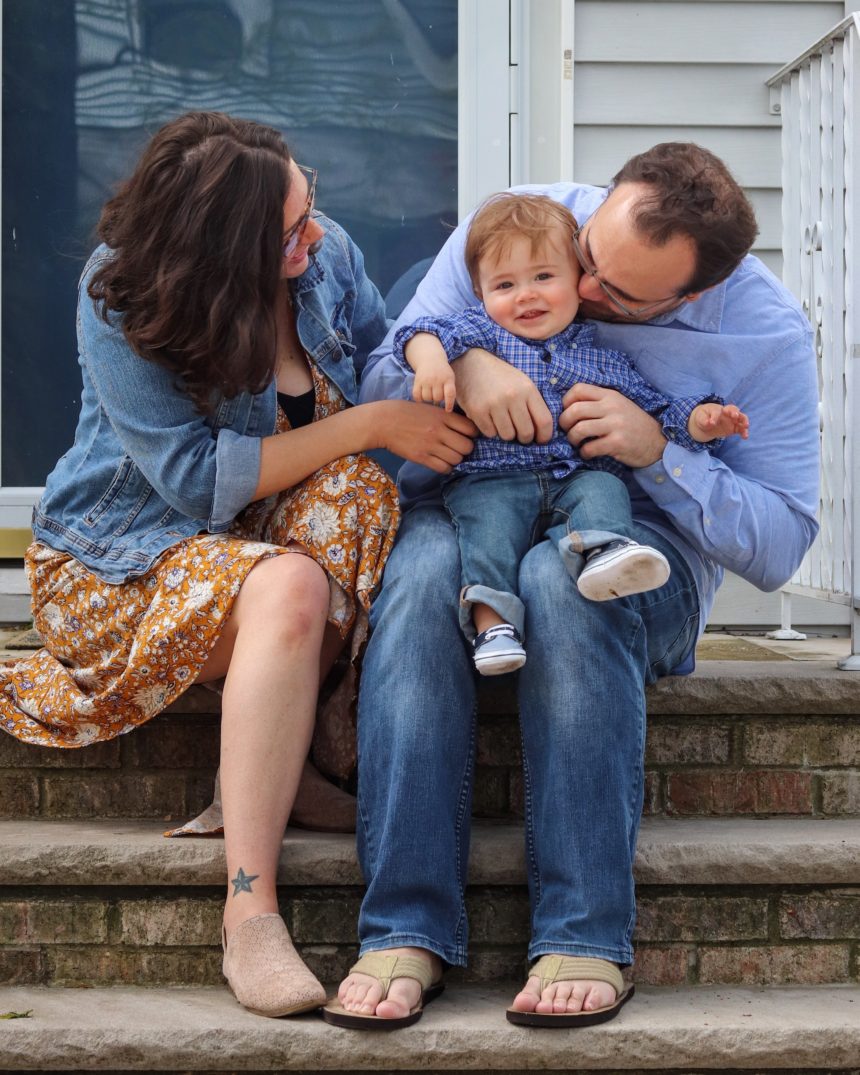When should you tell your child that they were adopted? The simple answer is—often and as early as possible.
Adopting an Infant
If you adopt your child as an infant, you should begin talking to them about their birth parents and their adoption story as soon as you come home from the hospital. You may wonder, “But why share so soon? They will not understand what I am saying.” However, sharing this early is actually good practice for you to become comfortable with the idea and the words rather than just for the baby’s benefit at this point. Author, adoption professional, and adoptive mom, Lori Holden, recommends, “Start as early as possible. Our agency suggested we tell our infant daughter the story of how she came to be our daughter, I thought it was ridiculous […] Then I realized that getting comfortable with the story wasn’t for our child’s benefit—it was for ours” (Holden and Hass, 2013, p. 119).
When should you tell your child that they were adopted? The simple answer is—often and as early as possible.
No Secrets
Do you remember when your parents first told you something important about yourself—That you are a boy or girl? What race and ethnicity you are? Probably not, because you were told when you were too young to remember, when the topic came up, and when you needed to know (McClain, 2016). This is simply being truthful with your child–not keeping secrets. Having been placed for adoption is a part of your child’s story, and they have a right to know their information from as early on as possible.
By sharing early and often, your child will always know that they were adopted. Here at New Life Adoptions, we say—if your child can remember the first time you told them about their adoption… you shared it too late. In her book, Raising Adopted Children, Lois Ruskai Melina, writes, “The key is to talk about adoption when it seems natural and relevant to do so” (Melina, 1998, p. 93). Melina also says that “discussions of adoption should be open and ongoing” (Melina, 1998, p. 89).
Adoptive Parent Insecurity
Some adoptive parents have shared that when they waited until their children were older and asked questions before telling them that they were adopted, the parents got nervous. This can be a clear indicator that this topic triggers negative emotions for them. If adoptive parents dread the thought of the topic coming up, or they feel anxious about it, that is an indicator that they, as adoptive parents, have unresolved issues about the subject. However, if adoptive parents talk about their child’s story from the beginning, they are practicing sharing and at the same time working through difficult feelings in the process.
There becomes a comfortability about naturally sharing their story with them. The goal is to share on an ongoing basis with openness and honesty. It is being truthful from the beginning about the child’s story. In the book, Making Room in Our Hearts, Amy, an adoptive mom, explains, “Kids can handle the truth much better than they can handle the betrayal of being lied to. All adopted children deserve this” (Duxbury, 2007, p. 103).
The goal is to share on an ongoing basis with openness and honesty. It is being truthful from the beginning about the child’s story.
Gaining Understanding
Others will argue that when kids are too little, they will not understand if you talk about their story and their birth parents. It is true that an infant does not have the cognitive ability to understand the words, but as they grow, the little one will first hear the words, then begin to repeat them, and over time, gain understanding. Ronny Diamond, the director of the Adoption Consultation Team at Spence-Chapin in New York City stated, “The best experiences are when children say, ‘I just always knew I was adopted’” (McLain, 2016). Holly van Gulden and Lisa Raab wrote in their book, Real Parents, Real Children, “By telling your child about the adoption now, she will grow up feeling she has always known about it” (van Gulden and Bartels-Rabb, 2000, p. 150).
Additionally, Melina also says that if the child hears their story from his/her parents early and regularly, “there is then no risk that the child will hear about her adoption first from someone other than her parents or in anything but a loving atmosphere” (Melina, 1998, p. 91). She goes on to caution that there is a fine line between talking enough versus talking so much that the child thinks that there is something wrong with being adopted. She states, “The key is to talk about adoption when it seems natural and relevant to do so” (Melina, 1998, p. 93).
Now that you know when to talk to your child about their adoption, the next natural question is how to share your child’s adoption story with him or her. We will address this topic in an upcoming blog posted soon!
Sources:
Duxbury, M. (2007). Making Room in Our Hearts: Keeping Family Ties Through Open Adoption. Routledge Taylor & Francis Group.
Holden, L., & Hass, C. (2013). The Open-Hearted Way to Open Adoption: Helping Your Child Grow Up Whole. Rowman & Littlefield Publishers, Inc.
McClain, L. T. (2016, May 28). Your Earliest Adoption Conversations. Adoptive Families. https://www.adoptivefamilies.com/talking-about-adoption/talking-to-your-young-child-about-adoption/
Melina, L. R. (1998). Raising Adopted Children. HarperCollins Publishers Inc.
van Gulden, H., & Bartels-Rabb, L. M. (2000). Real Parents, Real Children: Parenting the Adopted Child. The Crossroad Publishing Company.




